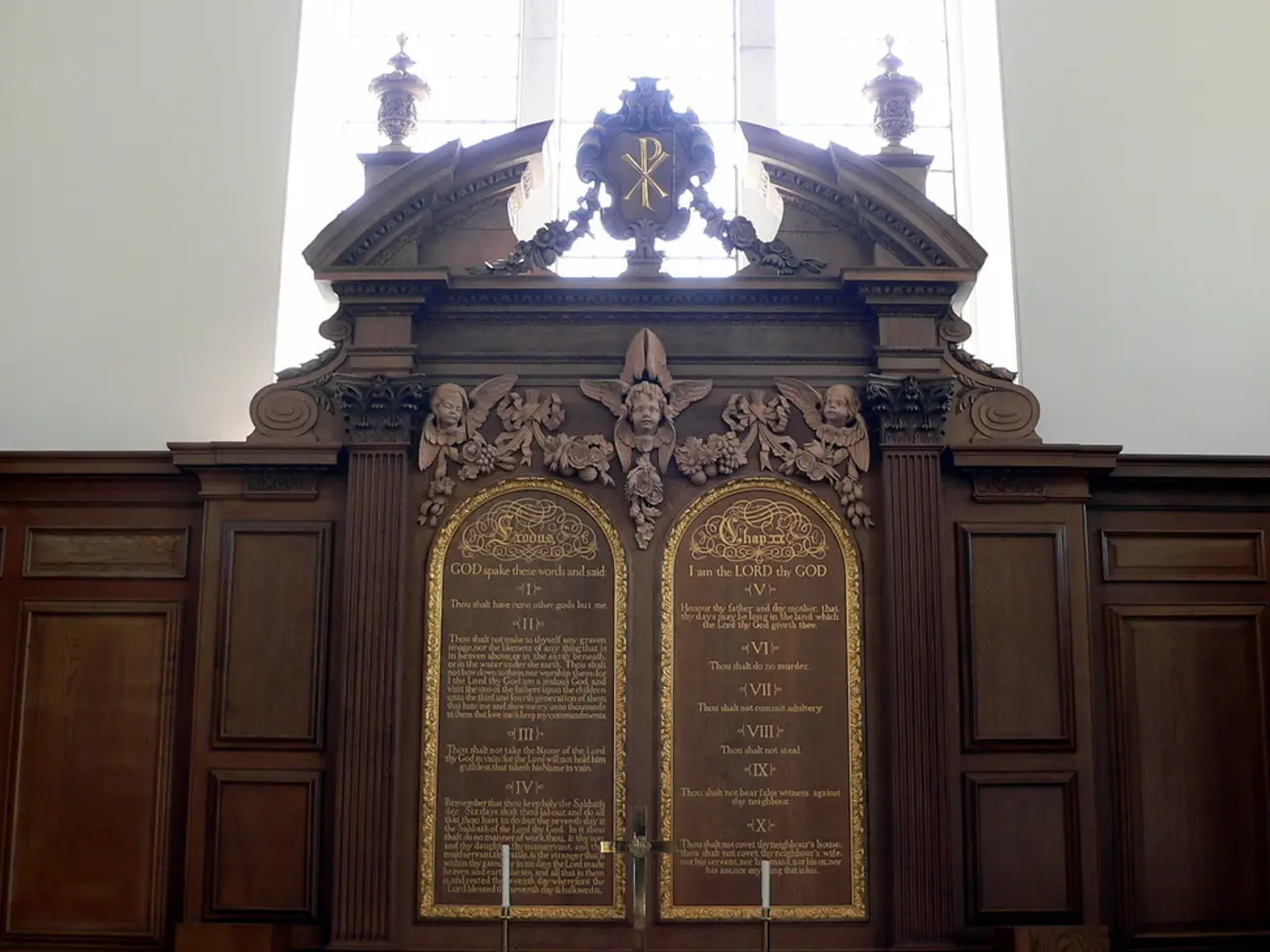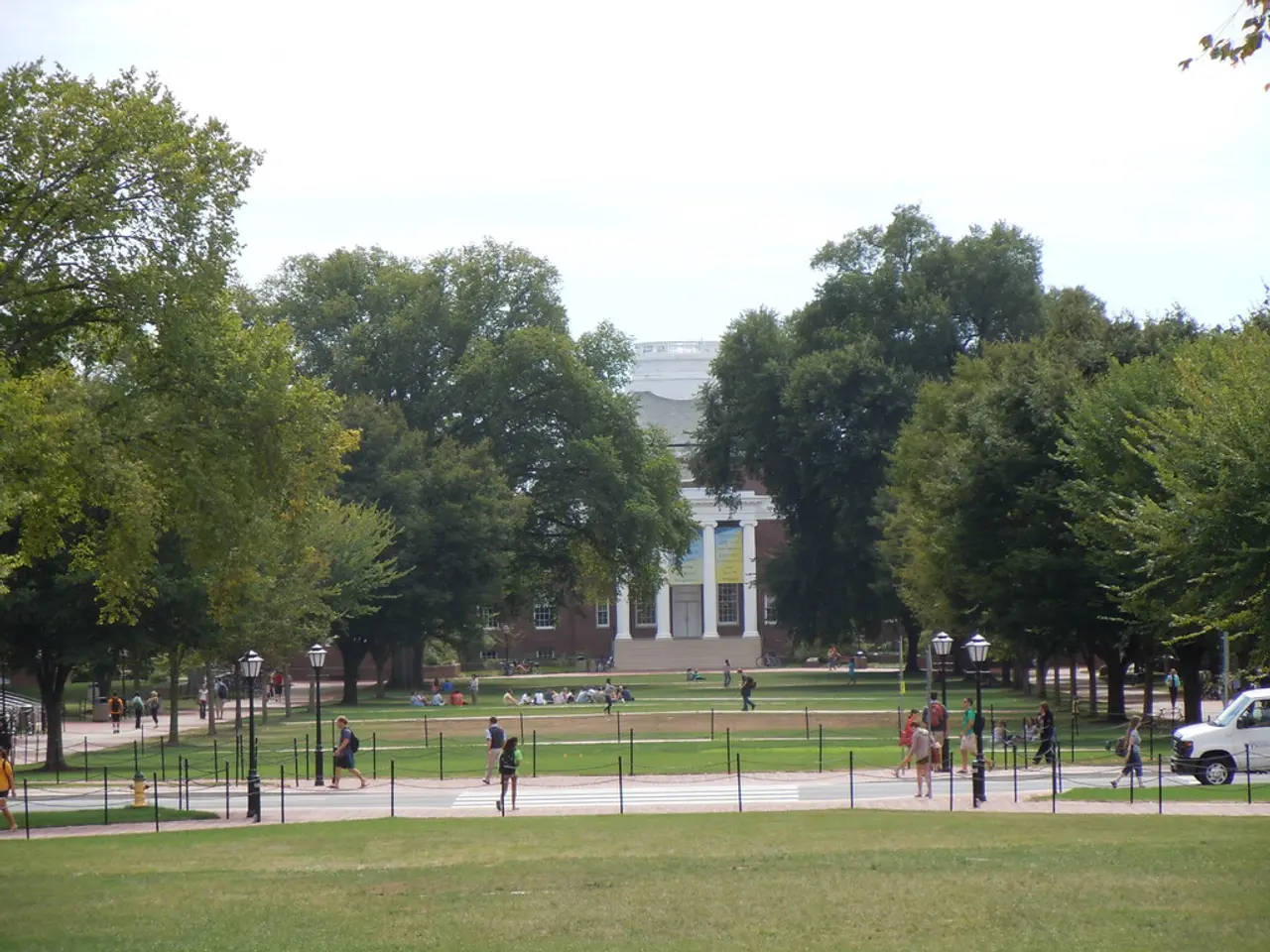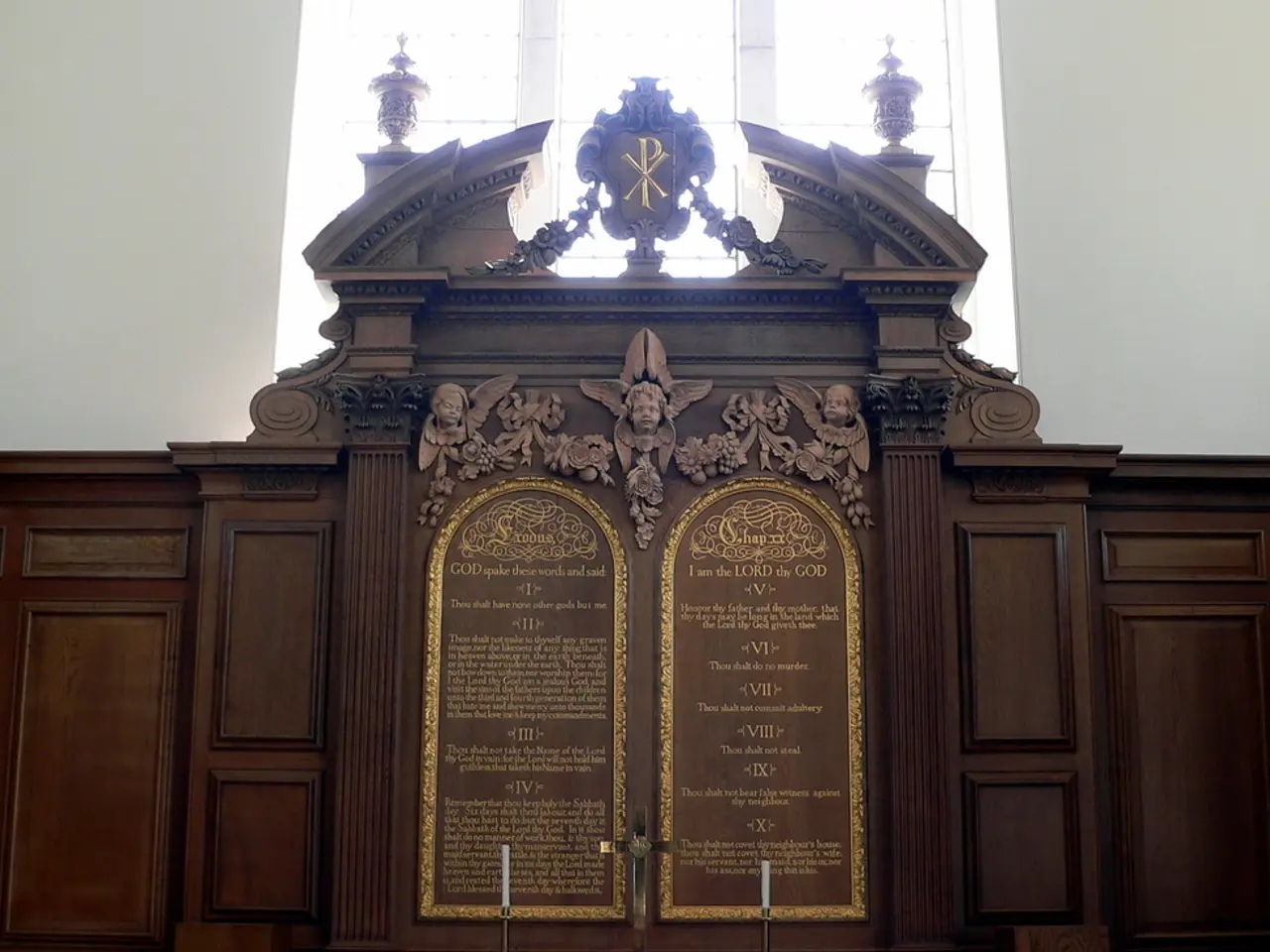QAnon adherents response to Donald Trump's management of the Epstein matter
In the ongoing discourse surrounding the Jeffrey Epstein case, a series of theories and narratives have emerged among Donald Trump's supporters, particularly those active online. These theories, many of which are not substantiated by credible evidence, offer an intriguing insight into the beliefs and perspectives of Trump's base.
One prevalent theory is the notion of a "deep state" or political, business, and media elite—particularly those critical of Trump—being implicated in Epstein's activities. This theory suggests that these individuals are intentionally protected by the establishment to prevent their exposure.
Another theory revolves around the allegation of selective media coverage and bias. Trump supporters argue that mainstream media outlets are deliberately downplaying or ignoring the identities of certain high-profile figures tied to Epstein, while allegedly amplifying associations with Trump for political gain.
A persistent but unproven theory is that the Clinton family, especially former President Bill Clinton, is deeply involved with Epstein's network. This theory is often connected to broader conspiracy narratives about the Clintons and "fake news."
Some Trump supporters claim that Trump was a whistleblower or investigator who tried to expose Epstein, pointing to his public statements about banning Epstein from Mar-a-Lago after a dispute. They often contrast this with other notable figures who maintained closer relationships with Epstein.
There is a strong belief among Trump's supporters that the U.S. legal and judicial systems are complicit in hiding the full truth, especially regarding whether Epstein's death in jail was a suicide or a cover-up. This belief is often linked to broader skepticism towards federal agencies among Trump's base.
It is important to distinguish between speculation and substantiated fact. While curiosity and skepticism about elite power structures are valid, these theories often rely on inference, innuendo, and partisan framing rather than documented proof. The Epstein case is a real and serious matter of sexual exploitation and abuse, and it is crucial not to conflate serious investigation with unfounded conspiracy theories.
The Epstein case has undeniably become enmeshed with partisan politics. For many Trump supporters, it serves as a symbol of alleged elite corruption—a narrative that aligns with broader anti-establishment themes in Trump’s messaging. However, it is essential to approach these theories with a critical eye and to seek out evidence-based information.
Recently, the Department of Justice declared that the Epstein case is closed, and Trump's promise to release government files about Epstein during his campaign remains unfulfilled. Trump's supporters continue to demand the release of whatever information the administration may have on Epstein.
Jeffrey Epstein's story is also a central example for conspiracy theorists who believe in a satanic cabal of pedophiles among powerful people. The QAnon conspiracy theory posits that Donald Trump is destined to defeat this cabal. As the Epstein case continues to generate speculation and debate, it is crucial to maintain a clear and objective perspective, separating fact from fiction.
- The Epstein case, intertwined with politics, has sparked theories among Donald Trump's supporters, such as the claim that a "deep state" or influential figures critical of Trump might be connected to Epstein's activities.
- In the realm of news and media, Trump supporters allege that mainstream outlets exhibit a bias, allowing some high-profile figures linked to Epstein to escape scrutiny, while amplifying associations with Trump for political gain.
- Amidst the general-news and crime-and-justice coverage, unsubstantiated theories suggest that the Clinton family, particularly former President Bill Clinton, could be deeply implicated in Epstein's network, often connected to broader conspiracy narratives about the Clintons.







